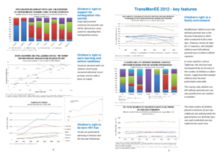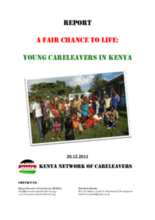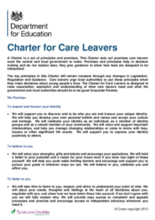Displaying 921 - 930 of 991
This article reviews the emerging literature on transnational parenthood, concentrating on six themes: gender, care arrangements, legislation, class, communication and moralities.
TransMonEE is a database that captures a vast range of data on social and economic issues relevant to the situation and wellbeing of children, adolescents and women in 28 countries of Central and Eastern Europe, Commonwealth of Independent States and the European Union. This document includes inter-country comparisons of data on several issues related to children’s care.
Documenting the young people‘s own views of what has happened during the time of leaving care and afterwards, this study explores in-depth the experiences of care leavers during the dynamic phase following their separation from an institutional care setting.
This Charter lists the promises that care leavers want the central and local governments to make. The Charter for Care Leavers is designed to raise expectations, aspirations and understanding of what care leavers need and what the government and local authorities should do to be good “Corporate Parents.”
This monograph reviews literature pertaining to children without permanent parents.
This paper explores the research evidence from England and France on the mental health of young people aging out of care and into adulthood.
In December 2011, the Children and Youth Services Review released a special volume (32) focused on "Young People's Transitions from Care to Adulthood."
The study explores the post-care experiences of young Jordanian care leavers. Material struggles were similar to peers internationally. The distinct difference for Arab care leavers was the cultural influence. Patriarchy, family life and collectivism impact the care leavers' experiences. A cultural dimension increases understanding of leaving-care.
This paper discusses findings from a qualitative longitudinal study which explored the process of leaving long-stay institutional state care in Romania during 2002–4, a period at the heart of accelerated EU-enforced childcare reform.
Foster youth in the US do not appear to be receiving many forms of help that are called for in federal law. Over one-third did not receive help they would have liked to have received. System factors play a stronger role than individual indicators of need in help receipt. Independent living services should be more widely available and better targeted.



